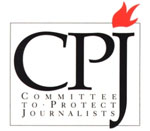Government assault debilitates Venezuelan private press

"The gradual dismantling of Venezuela's critical press over the last 13 years, coupled with smear campaigns on state media and judicial decisions that enable censorship, is a remarkable loss for citizens who need probing reporting, not propaganda, to make informed decisions," said Carlos Lauría, CPJ's senior program coordinator for the Americas. "Authorities should reverse the legal measures that perpetuate censorship, feed polarisation, and mute meaningful public debate."
The government of President Hugo Chávez has used an array of legislation, threats, and regulatory measures to gradually break down the independent press while building up a state media empire, which has resulted in censorship on issues that affect the daily lives of Venezuelans, including rampant violence, water contamination, and the prison crisis, the CPJ report shows.
With Internet penetration among the highest in the region, the government has also expanded its intimidation of journalists online. The accounts of critical journalists are hacked and used to promote pro-government messages, according to CPJ's report. "Venezuelans have taken to the Internet to pass on information the government seeks to obscure, such as power outages and oil spills," said Lauría. "This trend of attacks on one of the last platforms considered free and accessible opens a new front of vulnerability for the press."
Chávez's political goals are omnipresent and set clear limits on public dissent. Beyond using the country's vast state media empire to disseminate his message, since 1999, independent broadcasters have been obliged to transmit more than 1600 hours of presidential addresses known as cadenas. Meanwhile, independent outlets broadcasting news that counters state reporting are punished with excessive fines. "Venezuela's attack on the independent press is being emulated by governments across Latin America," said Lauría.
"A mounting assault to dismantle the Inter-American Commission on Human Rights, led by a bloc of countries that includes Venezuela, will soon leave local journalists with little recourse for justice and accountability beyond their own borders."
The report features an introduction by CPJ executive director Joel Simon and a podcast with CPJ's Lauría.
The report is also available in Spanish.




